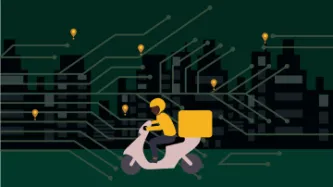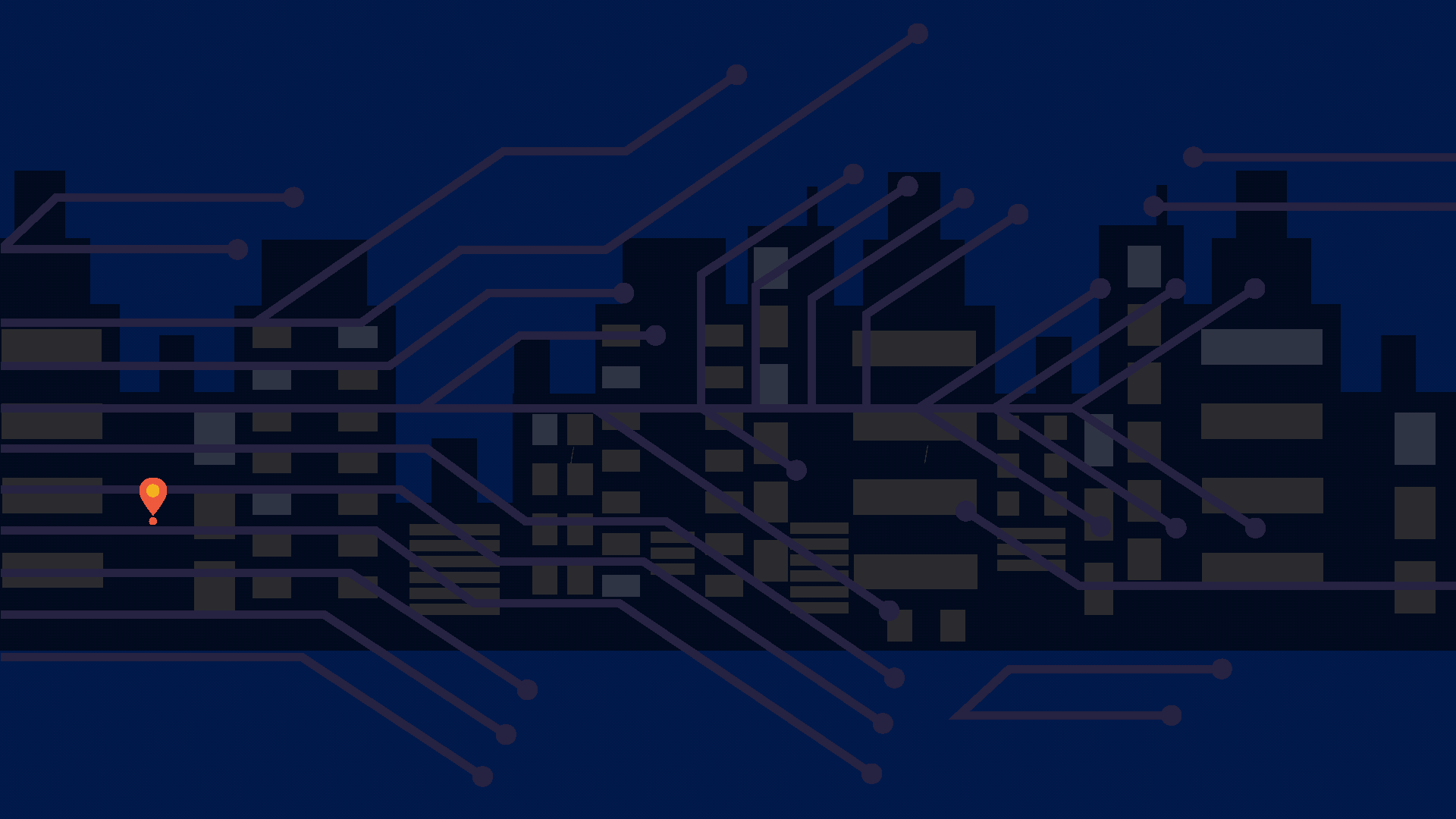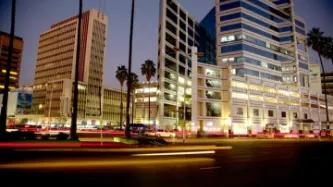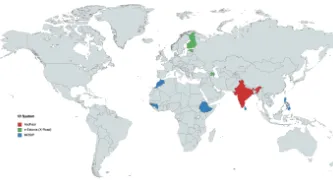Search
Content type: News & Analysis
The notorious Clearview AI first rose to prominence in January 2020, following a New York Times report. Put simply, Clearview AI is a facial recognition company that uses an “automated image scraper”, a tool that searches the web and collects any images that it detects as containing human faces. All these faces are then run through its proprietary facial recognition software, to build a gigantic biometrics database.
What this means is that without your knowledge, your face could be stored…
Content type: Explainer
Following sustained reporting by researchers, journalists and activists around the world, including recent disclosures exposed by the PegasusProject, the surveillance industry is facing scrutiny like never before.
In the latest move, eighteen U.S. lawmakers have today demanded that the U.S. government imposes sanctions on four non-US surveillance companies for, as they mention in their letter, facilitating “disappearance, torture and murder of human rights activists and journalists”.
The move…
Content type: Video
Update: Pa has since won a settlement from UberPlease note the views expressed in the video are interviewee's own and do not necessarily reflect the views of PI.Pa used to work for Uber. After some time, Uber started asking him to submit a picture of himself to the platform to confirm it was indeed him who had completed the job. However, with time, the frequency of the requests increased. In the beginning, the requests for a picture only happened once a week, but as time went by Pa told us that…
Content type: News & Analysis
To add your voice to the letter below, which we'll be sending to gig economy companies like Uber, Deliveroo, Bolt, Amazon Flex, Just Eat, Free Now, and Ola, sign the Managed by Bots petition. (PETITION IS NOW CLOSED, SEE UBER'S RESPONSE TO OUR CAMPAIGN LETTER. SEE DELIVEROO'S RESPONSE.
Worker Info Exchange (WIE), the App Drivers and Couriers Union (ADCU), Privacy International (PI) and other civil society organisations* are today writing to you with urgent questions about the exploitation of…
Content type: Long Read
What if your boss was an algorithm? What would you do if your employer suddenly fired you or reduced your pay without telling you why? And without being willing to give you a reason when you ask for one?
This is not science fiction or some far-fetched reality. Millions of people worldwide are working in the gig economy sector for companies like Uber, Deliveroo, Bolt, Just Eat… And this could be the future of work for people working outside the gig economy, as surveillance technologies are…
Content type: Video
Please note the views expressed in the video are the interviewee's own and do not necessarily reflect the views of PI.
Driver X (he wishes to remain anonymous) has been working for Uber for five years. After working for Uber for two and half years, he suddenly received a message telling him that his account had been temporarily suspended and asking him not to call Uber while the investigation was pending. He was baffled, as he had an excellent record and rating, with plenty of positive…
Content type: Video
Please note the views expressed in the video are the interviewee's own and do not necessarily reflect the views of PI.
In his interview, Alexandru told us that he started to work for Uber in 2018. Despite being aware of negative experiences of others, he felt that everything was running smoothly, and for a while, Uber met his expectations.
However, in 2021, he received a notice from Uber that they had noticed fraudulent activity associated with his account. He went on social media and…
Content type: News & Analysis
What if we told you that every photo of you, your family, and your friends posted on your social media or even your blog could be copied and saved indefinitely in a database with billions of images of other people, by a company you've never heard of? And what if we told you that this mass surveillance database was pitched to law enforcement and private companies across the world?
This is more or less the business model and aspiration of Clearview AI, a company that only received worldwide…
Content type: Video
<br />
Links
Read more about the ICO's provisional decision
Support our work
You can find out more about Clearview by listening to our podcast: The end of privacy? The spread of facial recognition
Content type: Press release
In what could be seen as one of the strongest sanctions against the company in Europe, the Information Commissioner’s Office (ICO), which is tasked with enforcing data protection legislation in the UK, has today announced its provisional intent to issue a potential fine of £17 million against the controversial facial recognition company Clearview AI.
Clearview AI, which only received worldwide attention following a New York Times report back in January 2020, is a company whose business model…
Content type: Long Read
At Privacy International, we challenge companies and governments who infringe on our privacy and facilitate, as well, violations of other human rights.
Our most recent challenge is against Clearview AI, a company that trawls the internet to save photos of our faces to form part of their biometric database to sell. We have filed complaints alongside 3 other organisations with regulators in the UK, France, Italy, Austria and Greece. Our goal is a clear message that there is no place in society…
Content type: Long Read
Zimbabwe has a history of state led surveillance that is carried out more for political gain than for the investigation of legitimate criminal activities. During former President Mugabe’s 37 year rule the government used laws and state security structures to carry out targeted surveillance of persons of political interest and more generalised mass surveillance of the population.
Specific laws such as the Interception of Communications Act as well as mandatory SIM-card registration regulations…
Content type: Long Read
In a previous article, we mapped the influence of the Chinese company Huawei across the world and how their sales of smart city infrastructures are contributing to the reshaping of our public space.
We should be alarmed by some of their product deployments – such as the installation of facial recognition technologies in countries with concerning human rights records. But also the deployments of facial recognition technology in countries without strong data protection laws are as such…
Content type: Long Read
The smart city market is booming. And with a booming market comes companies that are profiting and reshaping our public space, like the Chinese tech company Huawei.
While the term ‘Smart City’ is a broad one that encompasses many different initiatives, some with little to no impact on our privacy and other rights. Certain issues are nevertheless recurrent: the lack of transparency around public-private partnerships, the absence of consultation, and the appetite for a “tech quick fix…
Content type: Long Read
For over 20 years with the start of the first use of ICTs in the 1990s, we have seen a digital revolution in the health sector. The Covid-19 pandemic significantly accelerated the digitalisation of the health sector, and it illustrates how fast this uptake can be and what opportunities can emerge; but also, importantly, the risks that it involves.
As we've said many times before, whilst technologies can be part of the solution to tackle some socio-economic and political challenges facing our…
Content type: Advocacy
The Office of the Privacy Commissioner of Canada has developed draft privacy guidance for police agencies' use of FRT, with a view to ensuring any use of FRT "complies with the law, minimizes privacy risks, and respects privacy rights". The Commissioner is undergoing consultation in relation to this guidance.
Privacy International and the Canadian Civil Liberties Association ("CCLA") welcome the Commissioner's efforts to strengthen the framework around police use of facial recognition, and the…
Content type: Examples
The 20 years since the 9/11 attacks have fundamentally changed the way the New York Police Department operates, leading it to use facial recognition software, licence plate readers, and mobile X-ray vans, among other surveillance tools for both detecting and blocking potential terrorist attacks and solving minor crimes. Surveillance drones monitor mass protests, antiterrorism officers interrogate protesters, and the NYPD’s Intelligence Division uses antiterror tactics against gang violence and…
Content type: Examples
Clashes between police and lockdown protesters have spawned reports of police brutality in Greece. Mobile phone footage of one such protest in March 2021 suggested that the police are using drones to surveil the protests, and some of those remanded have complained that they’ve been beaten and subjected to threats and sexual harassment while in custody. Disinfaux Collective has identified an individual caught on video throwing a petrol bomb as “either a police officer of the DRASI unit… or,under…
Content type: Examples
The Myanmar military are stopping people in the street, checking through the data on their phones, and taking them to jail if they find suspicious messages or photos. At least 5,100 people were still in jail many months after opposing the February 1, 2021 military takeover. The spontaneous searches also deter individuals from continuing to post on social media or lead them to create new accounts they hope will evade detection, and avoid crowded streets where police or soldiers are likely to be…
Content type: Examples
July 2021 saw violent protests that left 72 people dead and 1,300 in prison after former president Jacob Zuma was jailed for failing to appear before a constitutional court’s inquiry into corruption during his time in office. In response, the South African government deployed the military onto the streets in the provinces of Gauteng and Kwazulu Natal, and began monitoring social media platforms and tracking those who “are sharing false information and calling for civil disobedience”. President…
Content type: Examples
The South African government urged social media platforms to trace and remove posts that incite violence, share false information, and call for civil disobedience after a July 2021 series of spiralling protests sparked by the jailing of former president Jacob Zuka. A number of other African countries such as eSwatini, Senegal, Nigeria, Uganda, Niger, and the DRC have also been increasingly using tracking software, internet shutdowns, and social media monitoring during protests and elections.…
Content type: Examples
Following the largest protests seen on the island in decades, Cuba’s government introduced new social media regulations that make inciting acts that alter public order a crime, and ordered ISPs to shut off access for those who “spread fake news or hurt the image of the state”. Critics believe the new rules are intended to curb dissent, as the protests spread across the island from a small town, where the first protest was convened in an online forum and spread via a Facebook livestream. Deputy…
Content type: Examples
Israel is abandoning its longstanding tactic of raiding Palestinian homes for “intelligence mapping” in favour of digitised surveillance that includes a vast and sophisticated 20-year-old network of CCTV, ANPR, and IP cameras throughout the Old City in East Jerusalem (“Mabat 2000”), automated facial recognition-equipped checkpoints (provided by the domestic company AnyVision) between Israel and the occupied West Bank, and drone surveillance at Palestinian protests. The drones over weekly…
Content type: Video
<br />
Links
Find out more about PI's work with and on humanitarian organisations uses of data here: https://privacyinternational.org/learn/humanitarian-sector
Read more about the Humanitarian Metadata Problem in our report on doing no harm in the digital age co-authored with the ICRC here: https://privacyinternational.org/report/2509/humanitarian-metadata-problem-doing-no-harm-digital-era
And you can learn more about the history of…
Content type: Long Read
Image source
This piece is a part of a collection of research that demonstrates how data-intensive systems that are built to deliver reproductive and maternal healthcare are not adequately prioritising equality and privacy.
Telemedicine describes the vast range of applications and technologies used to provide and manage healthcare remotely.
Telemedicine as its most basic refers to the transmission of data from a patient to a healthcare professional through a range of electronic…
Content type: Long Read
Governments around the world are increasingly making registration in national digital ID systems mandatory for populations, justifying its need on a range of issues from facilitating access to services, to national security and fighting against corruption. This is an attempt to create a "foundational identity" for an individual, or "a single source of truth" about who someone is, according to a government agency. These identity systems are run by governments, sometimes by private companies, or…
Content type: News & Analysis
Update: Based on the complaint, on 30 November 2021 the Ombudsman opened an inquiry into whether the European Commission failed to take into account human rights concerns or carry out human rights impact assessments before providing support to African countries to develop surveillance capabilities.
___
Privacy International (PI) together with a coalition of human rights groups have today called on the European Ombudsman, the EU’s oversight body, to investigate evidence that the block is…
Content type: Long Read
In early August, the African Union (AU) issued a statement condemning Denmark’s Aliens Act which, among other things, allows Demark to relocate asylum seekers to countries outside the European Union while their cases are being processed.
The AU argues that this amounts to an abdication by Denmark of “…its international responsibility to provide asylum and protection to those that enter its territory…’’ More importantly, the AU says this is an “extension of the borders of such countries and an…
Content type: News & Analysis
Introduction
The European Parliament has adopted a nonbinding resolution against the use of artificial intelligence (AI) by law enforcement in public spaces and a ban on facial recognition databases, such as the ones used by Clearview AI.
It is a significant and hugely welcome step in an ongoing campaign to ensure the EU leads the world in protecting against dangerous applications of AI within its borders.
The Resolution recognises the need to safeguard against application of AI and mass…




















